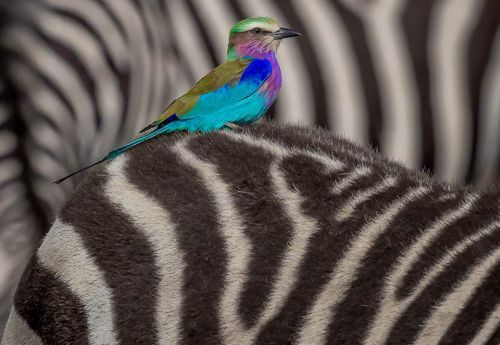You don’t have to be a nature-lover to appreciate these captivating shots taken from around the world.
The Natural History Museum has released its shortlist for its celebrated People’s Choice Award.
This remarkable gallery of finalists was selected from almost 50,000 submissions from 92 countries. The People’s Choice Award winner will be announced on February 13.
From birds bursting with colour to giraffes to fish we’re not used to seeing -- here are some of the pictures.
(Click on the photos for full-screen resolution)
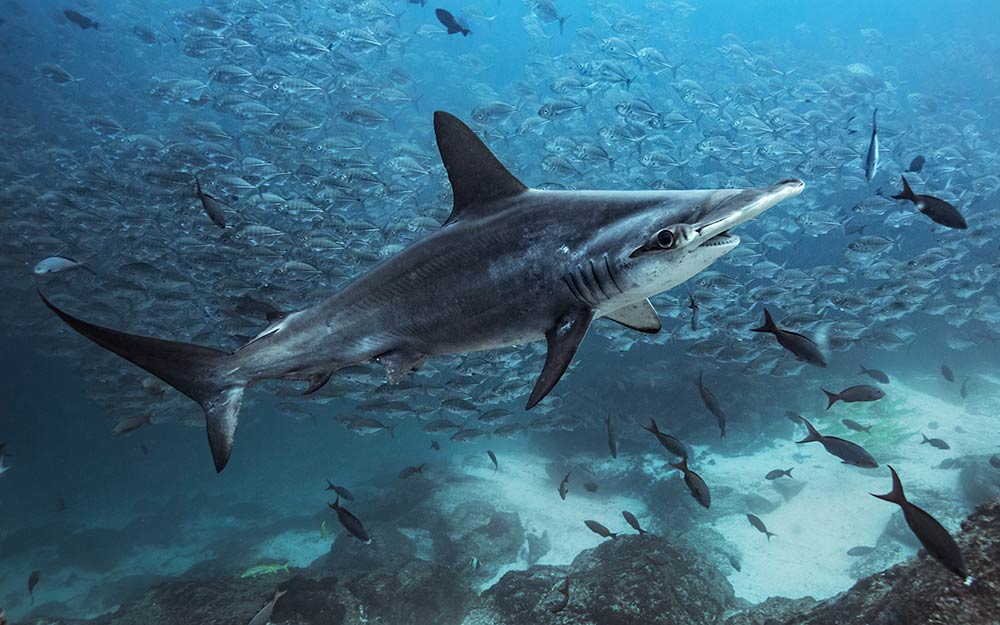
Adriana had the advantage of a sunny day and good visibility with ample natural lighting. When a school of cottonmouth jacks came into view she waited to see if a hammerhead might appear. It didn't take long. This particular shark stayed just long enough for her to capture a full frame with the school of cottonmouths in the background, giving her the unique composition she had been searching for.'
Photograph: Adriana Basques/Wildlife Photographer of the Year
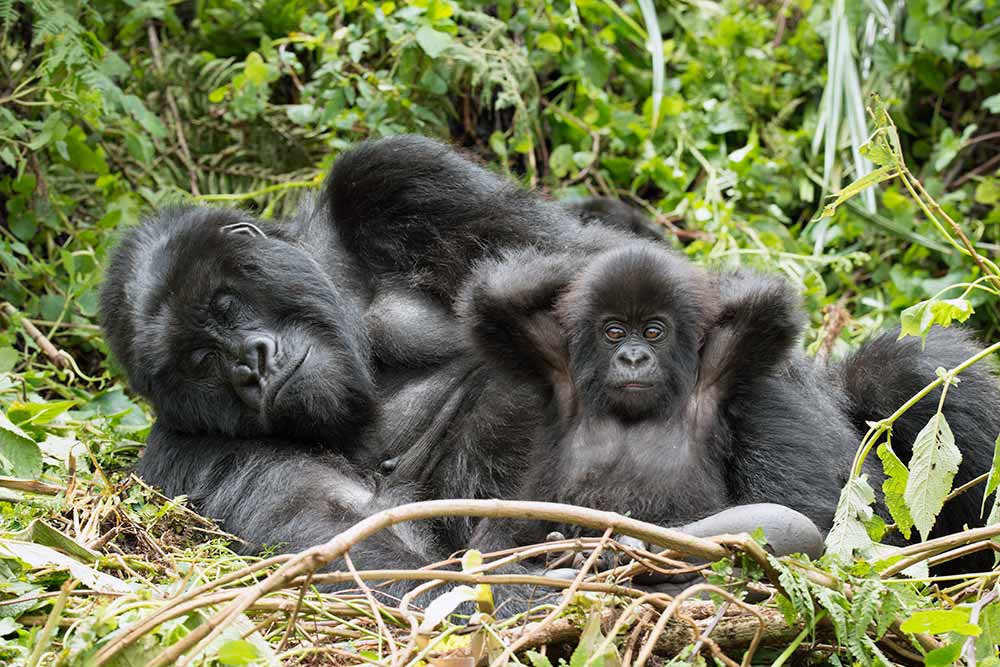
After more than two hours hiking with rangers in Volcanoes national park, Rwanda, Alan came across the “Hirwa” family group (meaning “the lucky one”). This group of 16 mountain gorillas is led by a single strong silverback. They were feeding on young bamboo shoots and relaxing in a leafy open spot.'
Photograph: Alan Chung/Wildlife Photographer of the Year
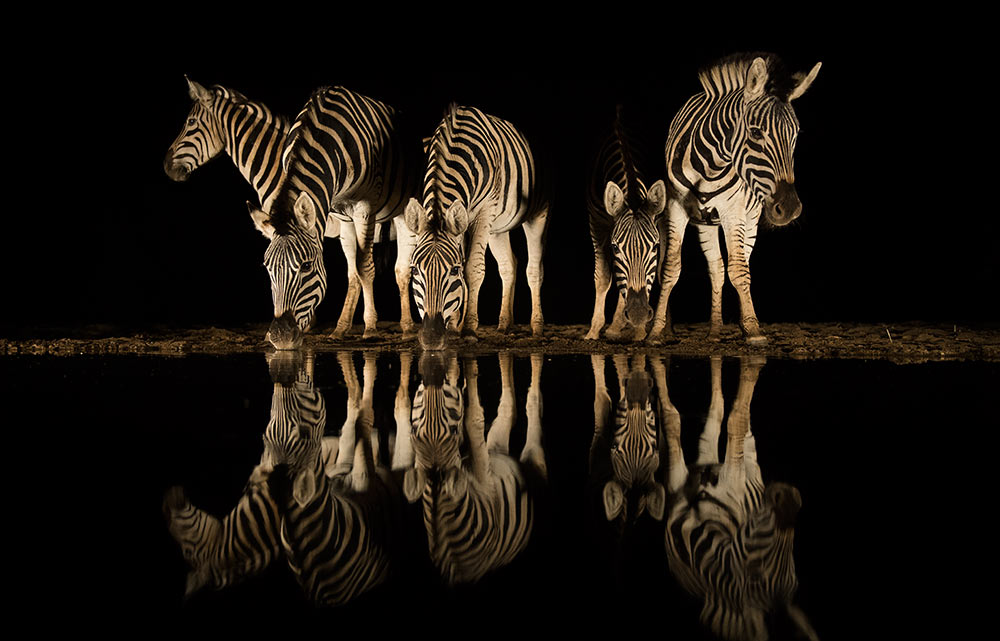
For Charl, nothing beats the excitement and anticipation of sitting in wait at a waterhole during the dry season, knowing that anything can appear out of the darkness. The herd of zebra in South Africa's Zimanga Game Reserve surpassed his wildest wishes, and the still conditions resulted in a near-perfect reflection.
Photograph: Charl Senekal/Wildlife Photographer of the Year
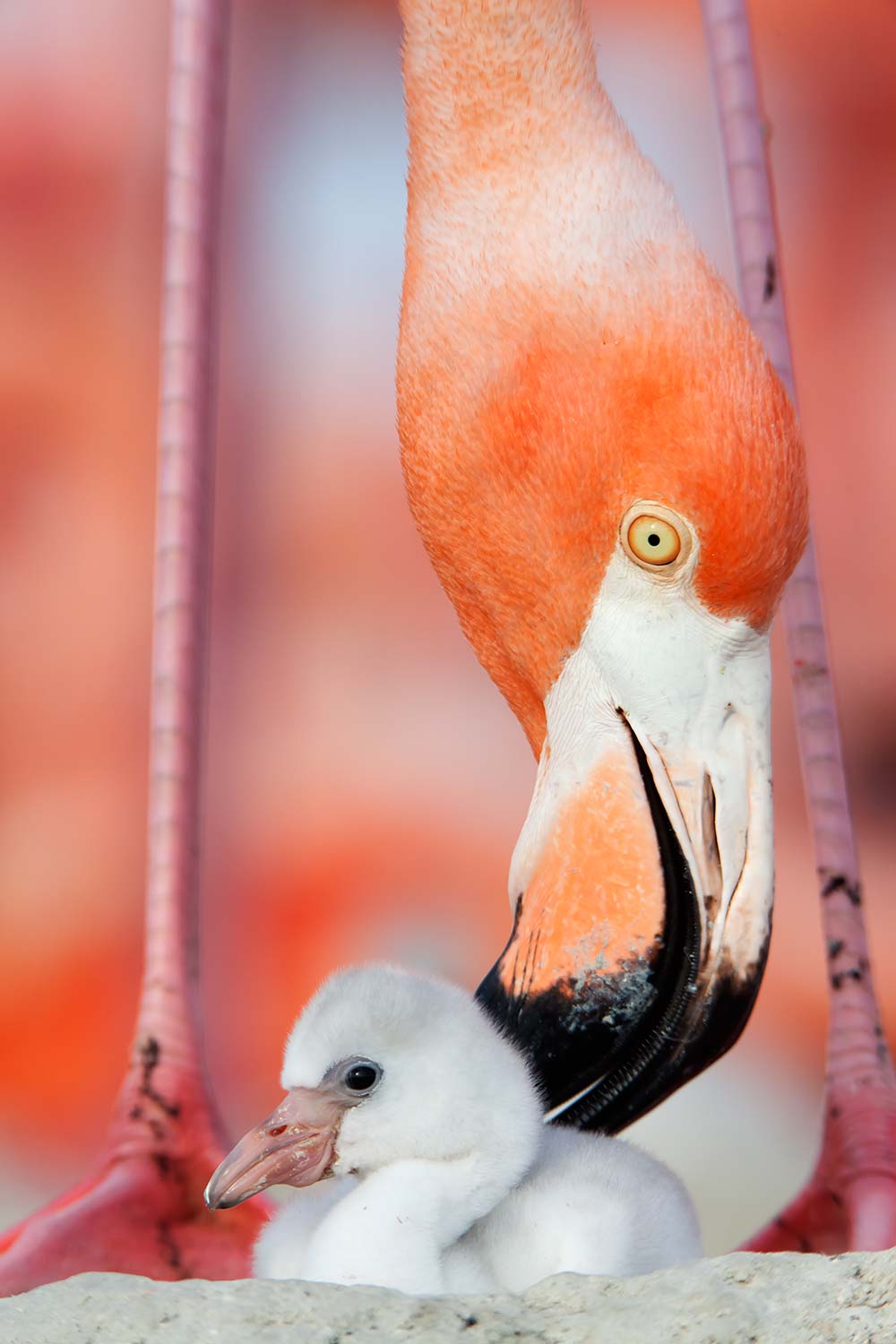
This fluffy Caribbean flamingo chick is less than five days old and is being preened by one of its parents in the Ría Lagartos Biosphere Reserve, Yucatán, Mexico. Chicks remain in the nest for less than a week; they then wander around the colony in crèches and start to feed for themselves, although their parents still continue to feed them for several months. The flamingo colony is highly sensitive to human presence, so Claudio could only approach the colony on all fours while hiding underneath a camo throw-over.
Photograph: Claudio Contreras Koob/Wildlife Photographer of the Year
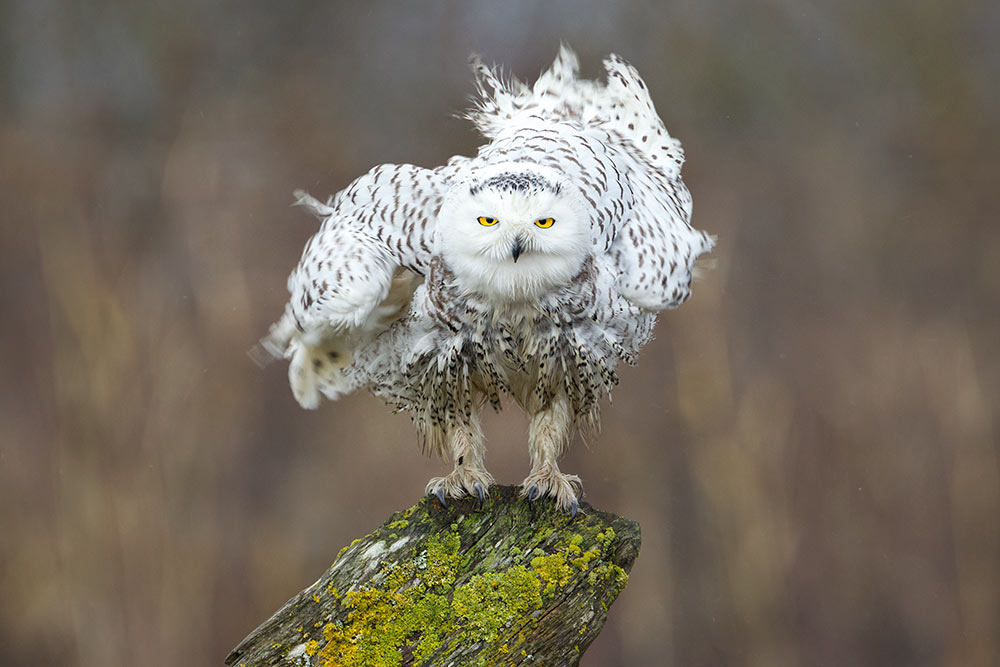
Approximately every five years an eruption of snowy owls makes its way down from the Arctic, where they breed, to the Pacific Northwest of North America, and congregates in areas like Delta, British Columbia. Connor captured this owl head-on as it was shaking off its feathers on a rainy winter day.
Photograph: Connor Stefanison/Wildlife Photographer of the Year
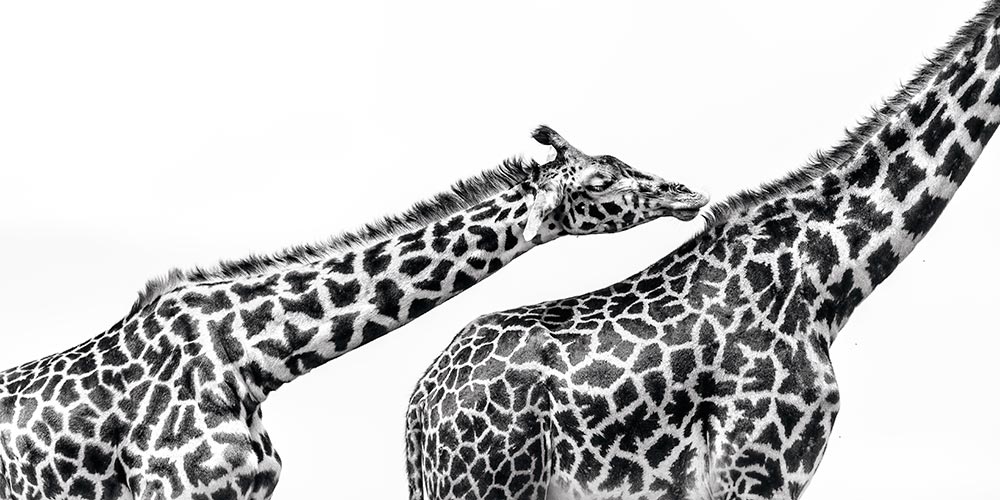
Sometimes photographing large animals in isolation from their background can be difficult, especially if the background is too detailed. Luckily, David managed to capture the giraffes of Kenya's Maasai Mara National Reserve against a white, overcast sky, but he still opted to shoot a little closer and, adjusting the exposure, caught the intimate moment of a giraffe grooming its companion.
Photograph: David Lloyd/Wildlife Photographer of the Year
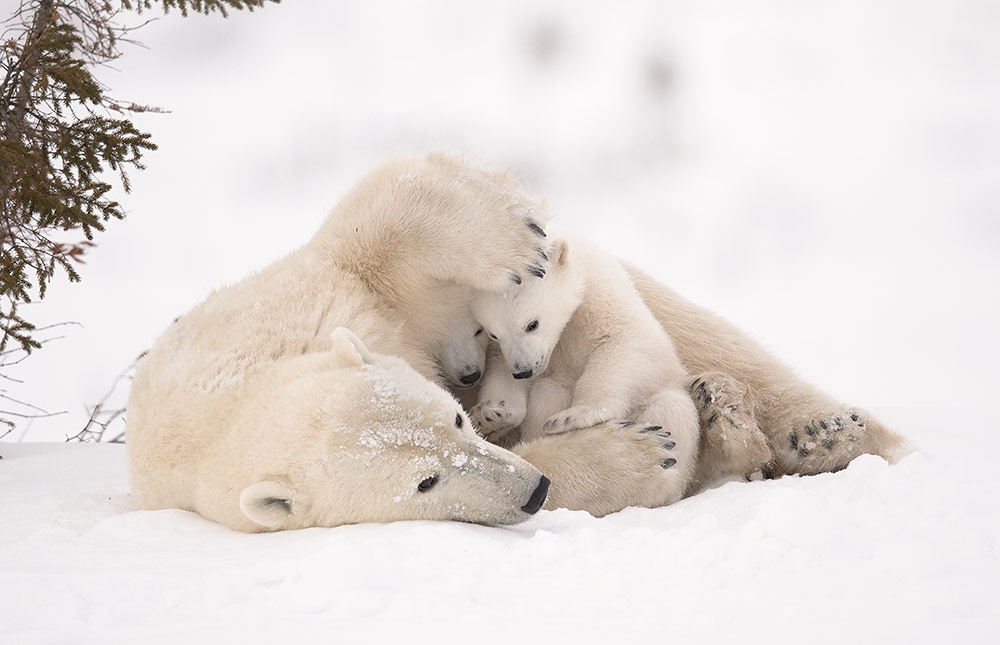
When polar bear mothers and cubs emerge from their dens in the early spring, the cubs stay close to their mothers for warmth and protection. Once the cubs are strong and confident enough, they make the trek to the sea ice with their mother so that she can resume hunting for seals. Debra waited six days near the den of this family, in Wapusk National Park, Manitoba, Canada, before they finally emerged. In the most challenging conditions she has ever faced, temperatures ranged from -35°C (-31°F) to -55°C (-67°F) with high winds, making it almost impossible to avoid frostbite and keep her camera gear functioning properly.
Photograph: Debra Garside/Wildlife Photographer of the Year
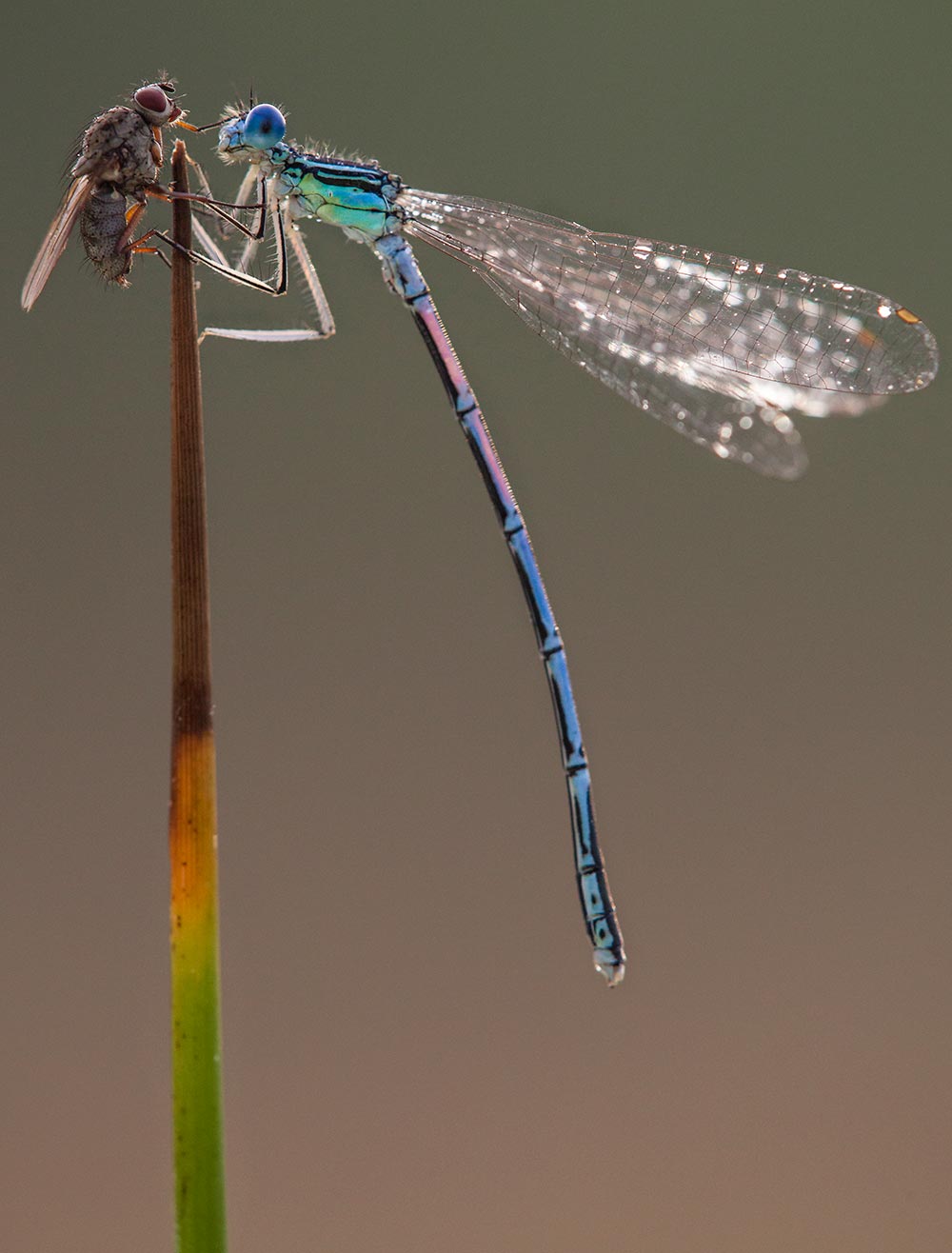
Eva was trying to get the perfect shot of this unbelievably colourful blue featherleg dragonfly in Bad Alexandersbad, Bavaria, Germany, when suddenly a fly appeared. It clung to the dragonfly briefly before flying off, but luckily returned and gave her this unusual photo opportunity.
Photograph: Eva Haußner/Wildlife Photographer of the Year
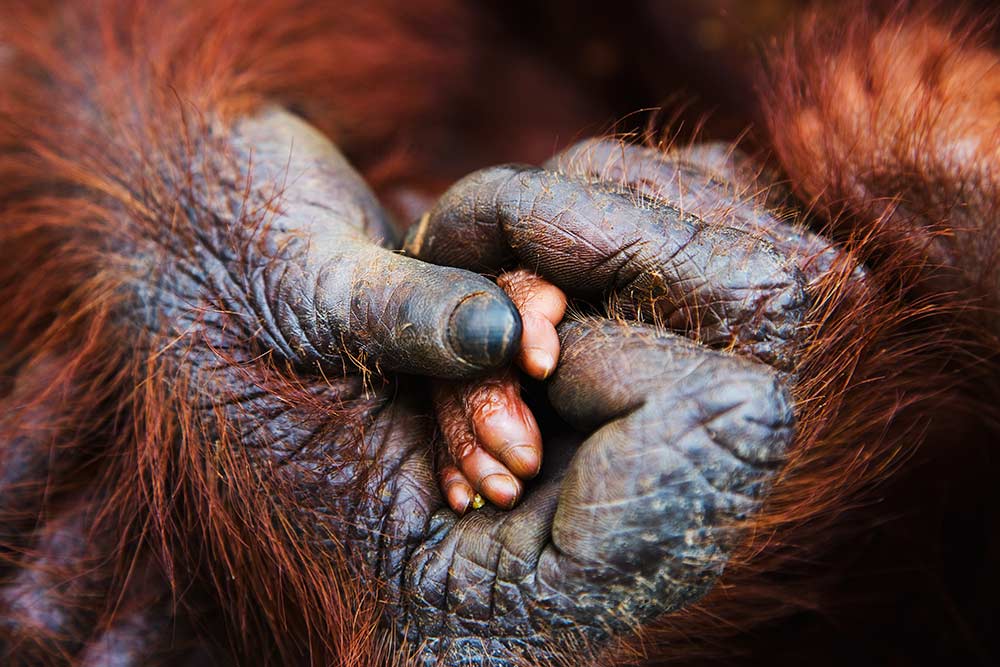
This close-up captures the touching moment an infant lays its small hand in the big hand of its mother. Jami took this photograph while she was in Borneo working on a story about the effects of palm-oil agriculture on orangutan habitat. Loss of primary rainforest is a serious threat to this already critically endangered species.
Photograph: Jami Tarris/Wildlife Photographer of the Year
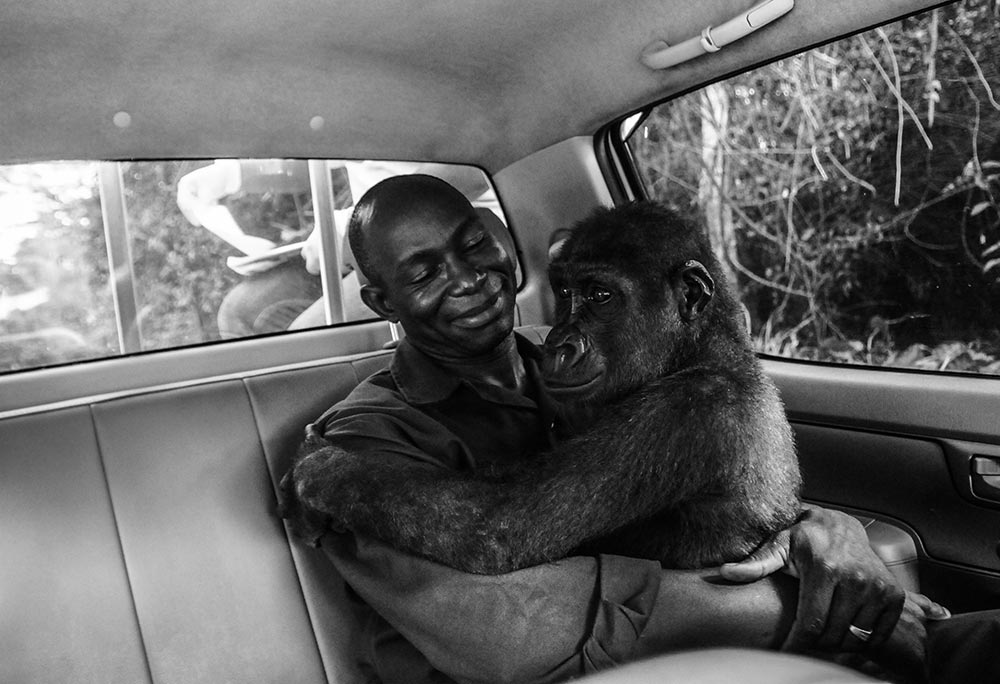
Pikin, a lowland gorilla, had been captured and was going to be sold for bushmeat but was rescued by Ape Action Africa. Jo-Anne took this photograph as the gorilla was being moved from her former enclosure within a safe forest sanctuary in Cameroon to a new and larger one, along with a group of gorilla companions. She was first sedated, but during the transfer to the new enclosure she awoke. Luckily, she was not only very drowsy, but she was also in the arms of her caretaker, Appolinaire Ndohoudou, and so she remained calm for the duration of the bumpy drive.
Photograph: Jo-Anne McArthur/Wildlife Photographer of the Year
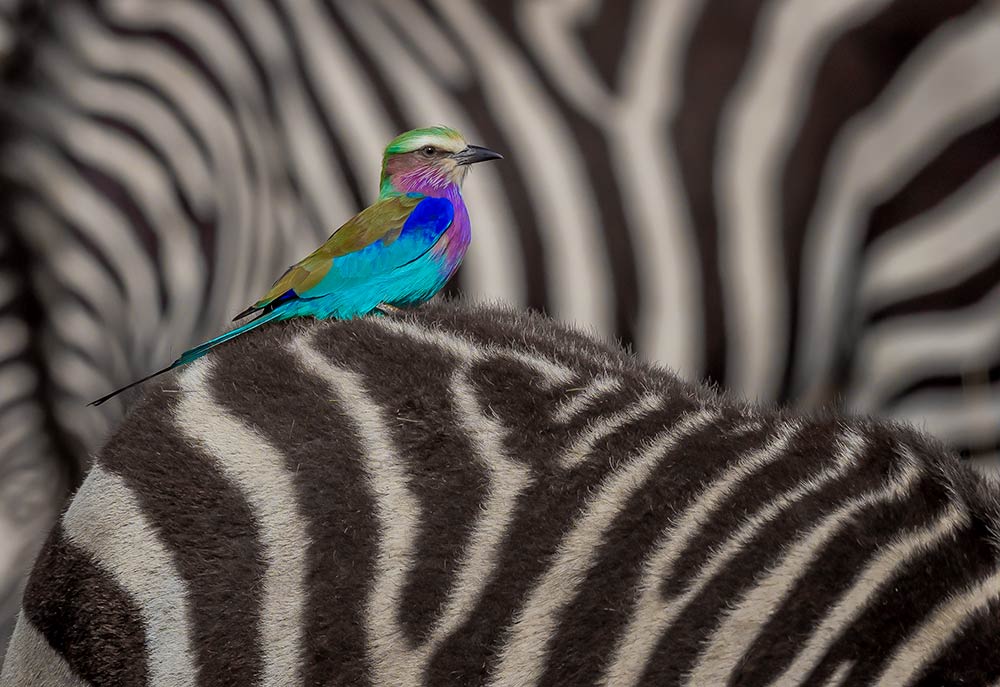
Lakshitha was on safari in Maasai Mara National Reserve, Kenya, when he spotted an unusual sight - a lilac-breasted roller riding a zebra. Normally they prefer to perch high up in the foliage, but this roller spent an hour or more riding around and enjoying the occasional insect meal. Lakshitha waited for the surrounding zebras to form the perfect background before taking this tight crop.
Photograph: Lakshitha Karunarathna/Wildlife Photographer of the Year
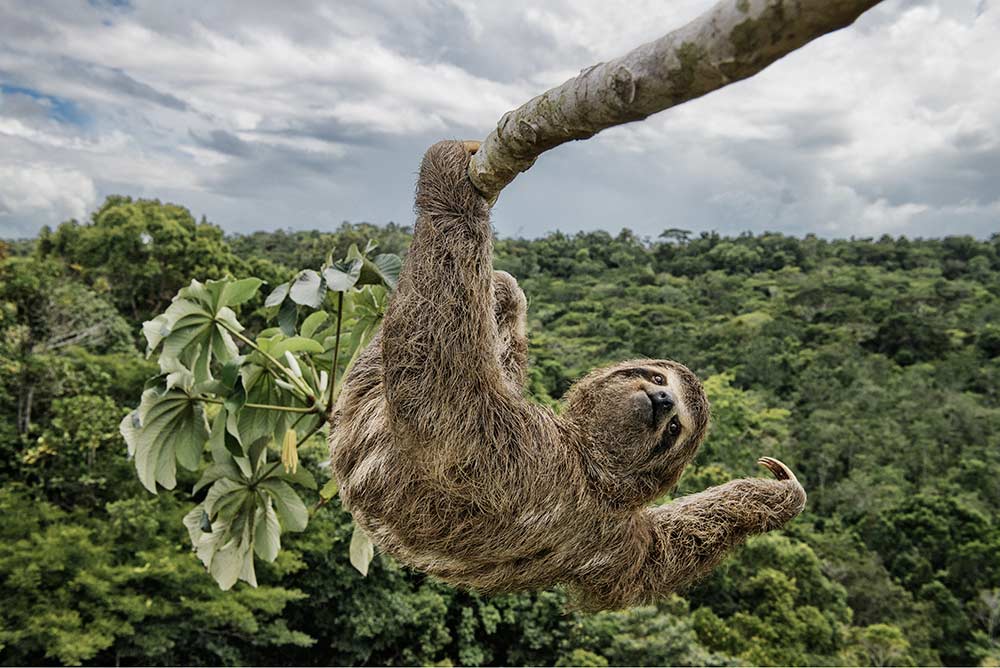
Luciano had to climb the cecropia tree, in the protected Atlantic rainforest of southern Bahia, Brazil, to take an eye-level shot of this three-toed sloth. Sloths like to feed on the leaves of these trees, and so they are often seen high up in the canopy.
Photograph: Luciano Candisani/Wildlife Photographer of the Year
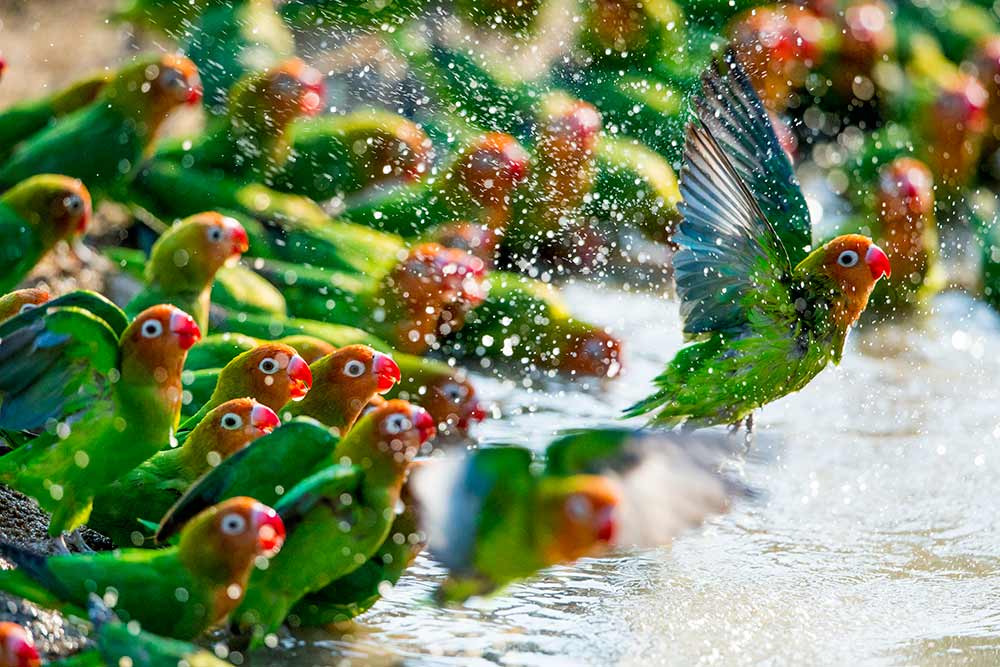
As the drought in Zambia's South Luangwa National Park stretched on, the waterholes dwindled to pools. Flocks of Lilian's lovebirds congregated together and when the coast was clear they descended to this pool. They shuffled forward, taking it in turns to drink and bathe, as if on a conveyor belt.
Photograph: Luke Massey/Wildlife Photographer of the Year
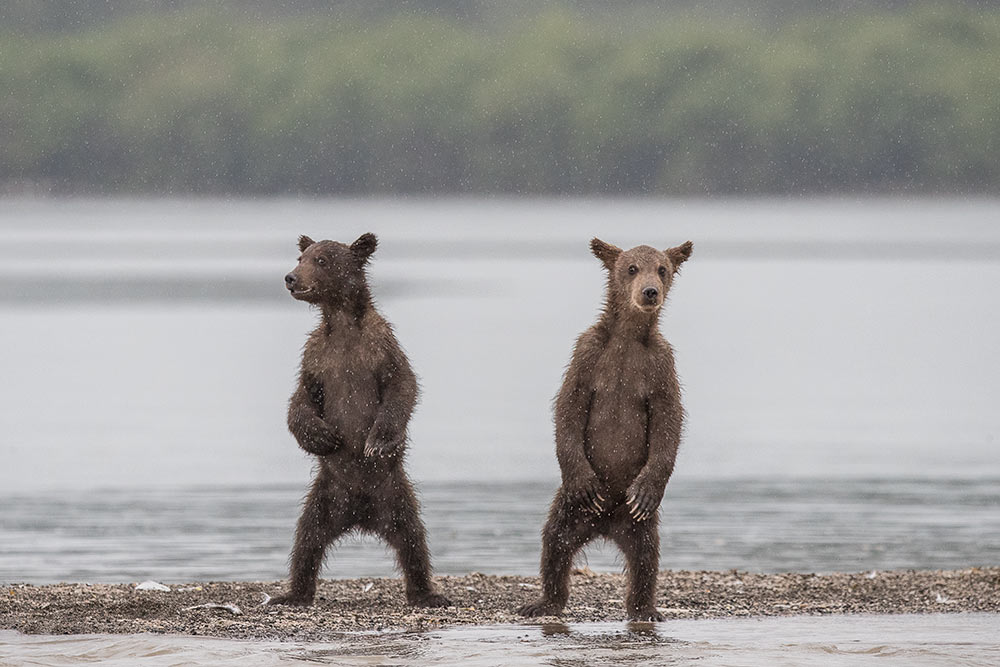
Millions of salmon spawn each year at Kuril Lake in the southern part of the Kamchatka Peninsula, Russia, attracting large numbers of brown bears. Marco noticed how curious these two brown bears were and was able to capture the moment when they both stood up on their hind legs to watch what he was doing. The rain falling onto the lake added an extra atmosphere to the scene.
Photograph: Marco Urso/Wildlife Photographer of the Year
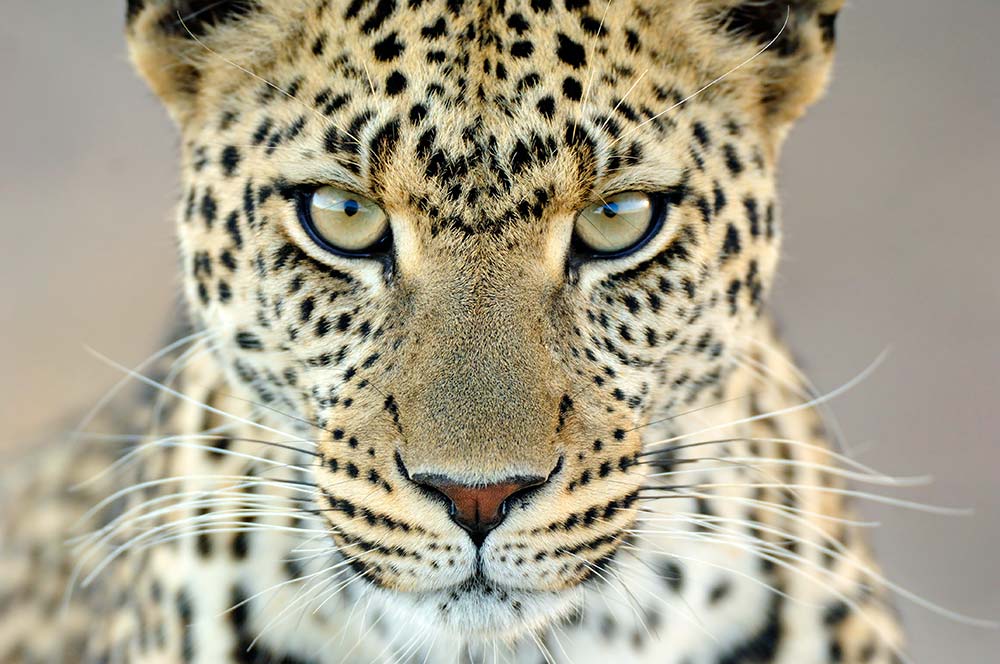
During a three-week stay in Serengeti National Park, Tanzania, Martin encountered this female leopard several times. Called Fundi by local guides, she was well known in the area. Late one afternoon, Fundi left the tree she was resting in and stopped by Martin's car, fixing him with her magnificent gaze.
Photograph: Martin van Lokven/Wildlife Photographer of the Year
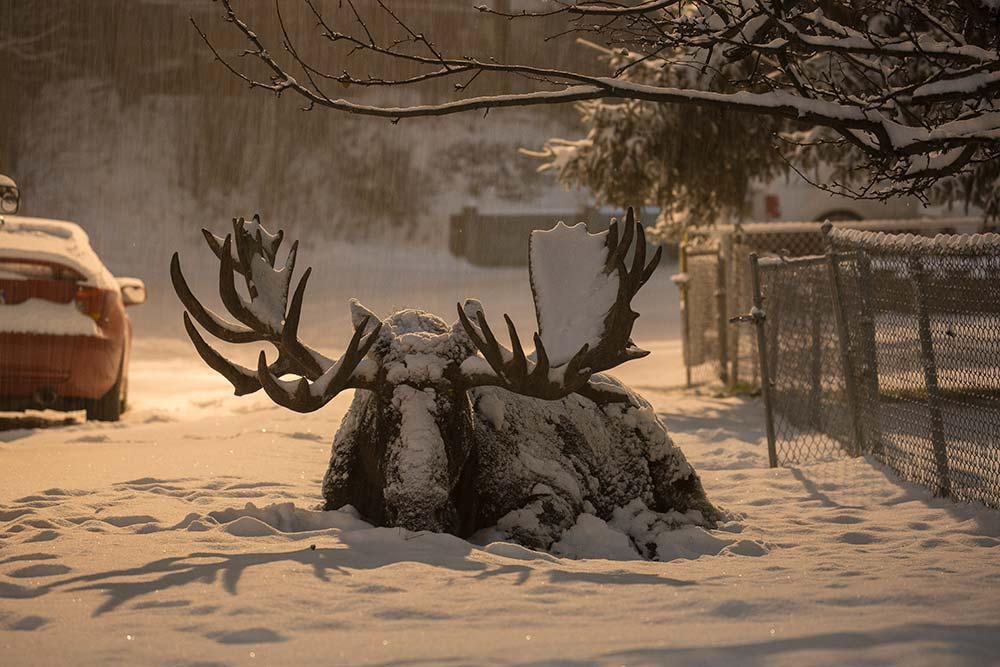
Moose are not strangers to the city of Anchorage, Alaska. This big bull is known as Hook, and Ryan knew from the previous year that he would be shedding his magnificent antler crown in the coming days. Ryan captured this scene in heavy snowfall as the rest of the city slept, and less than an hour later Hook shed his first antler.
Photograph: Ryan Miller/Wildlife Photographer of the Year
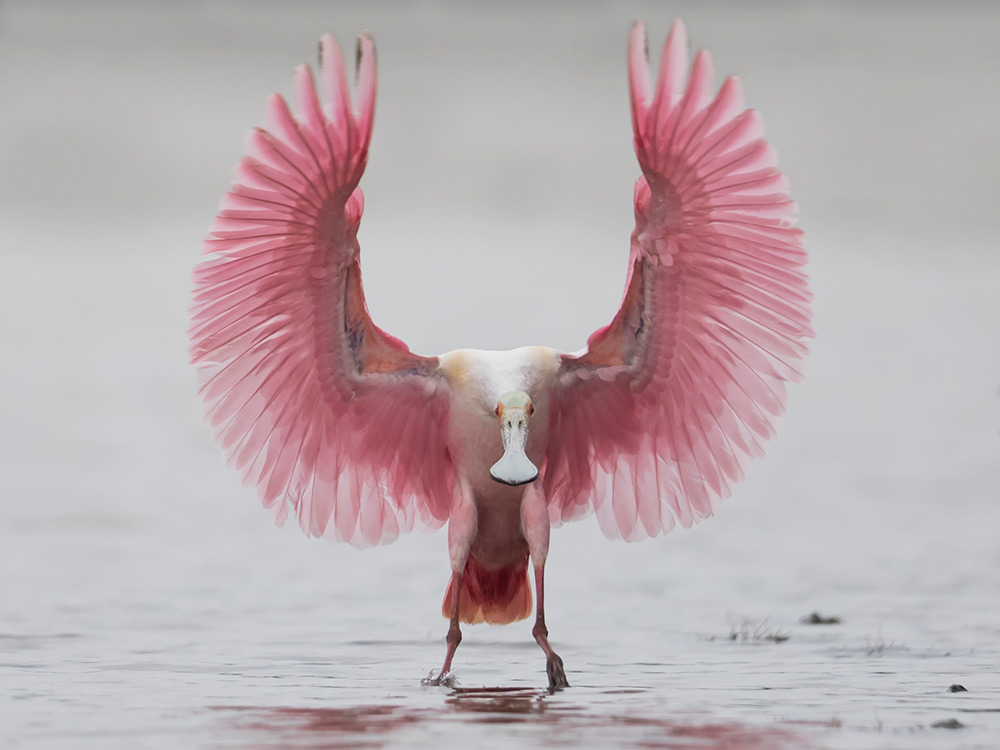
Steven was taking pictures of a small group of adult roseate spoonbills in a rookery in Tampa Bay, Florida, when he noticed a newcomer flying in from afar. With just enough time to back up a few steps, Steven photographed the bird landing exactly square to his camera with its wings in a stunning symmetrical U-shape.
Photograph: Steve Blandin/Wildlife Photographer of the Year
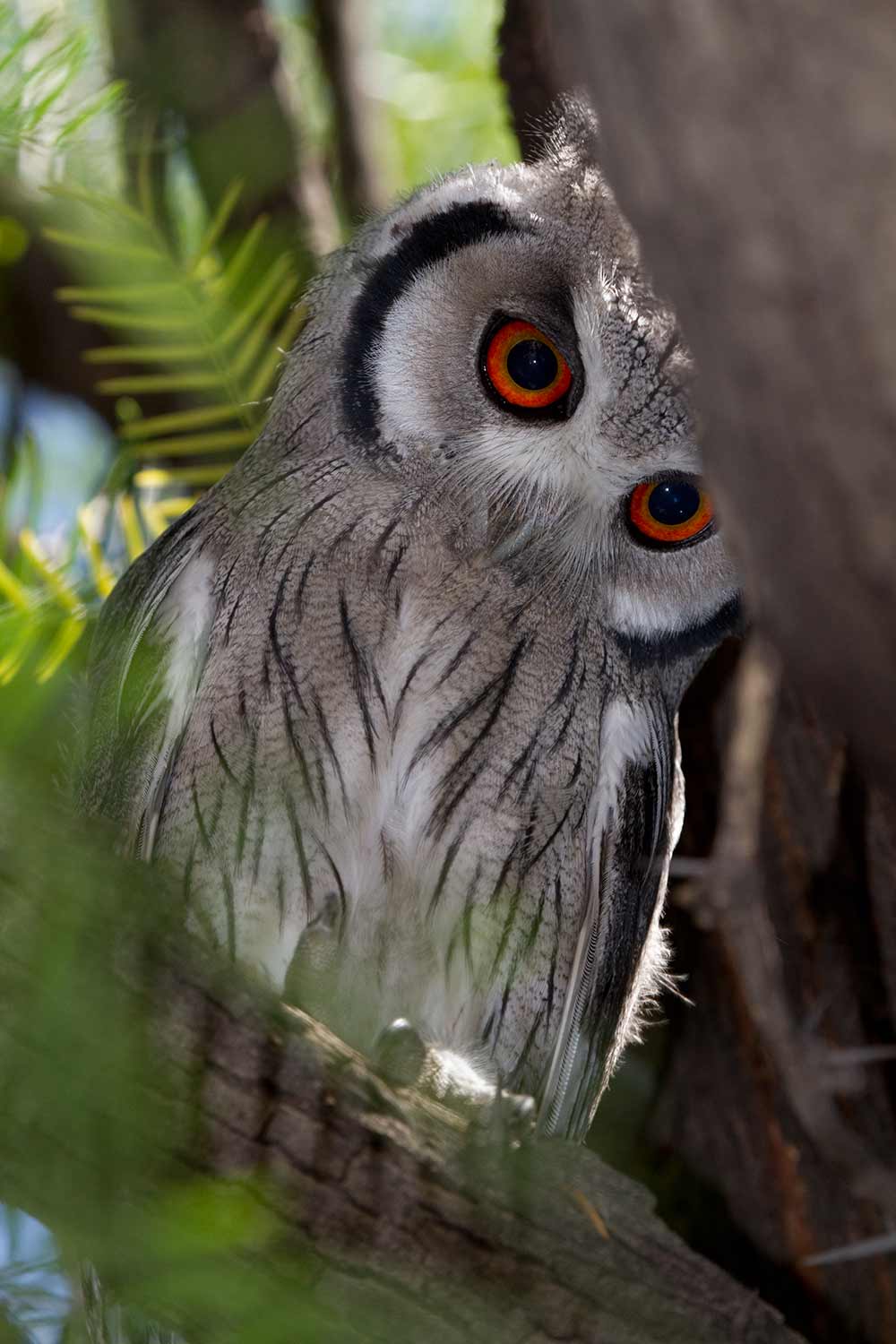
Jan spotted this small southern whitefaced owl in a tree at a campsite in the Kgalagadi Transfrontier Park, South Africa. These owls have black-tipped 'ear' tufts and usually lay their eggs in the old nests of other birds. Jan was able to frame a shot of this striking bird looking down at him as it didn't seem bothered by the comings and goings of the campsite.
Photograph: Jan Kolbe/Wildlife Photographer of the Year



